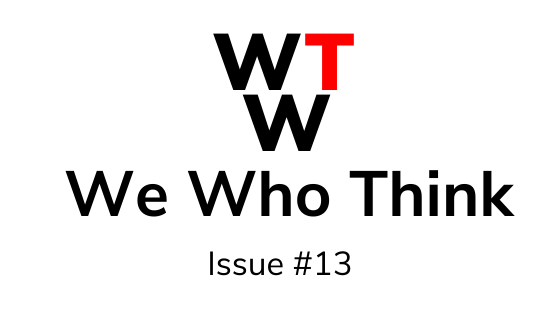Two types of decisions (according to Jeff Bezos)

Every week we curate 3 ultra-focused ideas to reduce life complexity. On Saturday we share them with you via email.
Let’s start!
Two types of decisions (according to Jeff Bezos)
Jeff Bezos follows several guidelines to make the right decisions. One key to his success is the speed of his decision-making.
To this end, he divides decisions into two categories:
a Type 1 decision represents a door you walk through and can’t go back,
a Type 2 decision represents a reversible choice.
Bezos suggests spending 10% of your week (as an entrepreneur) on Type 1 decisions. They need a lot of attention. Also, avoid working on them when you are in a bad mood, tired, or with the wrong people.
Type 2 decisions can be made in batches and very quickly. They can even be delegated.
These guidelines also apply to personal decisions. If you can't spend 10% of your week on an important decision, just remember to devote a deep reflection to it, in a moment where you feel good and energetic.
And when you have a reversible choice on your hands, don't waste your time. Save it for the most important decisions. If you'll make a mistake, recovering from the consequences will not cost a lot.
[Read the full content here: Jeff Bezos Says Successful People Make These Two Types Of Decisions]
Are you a simplifier or a multiplier?
Every great entrepreneur belongs to one of two categories:
the simplifier, who creates new things that make life easier,
the multiplier, who grows a working solution at scale.
Everyone should know which category he's in. If you play on your strengths you thrive.
On the other hand, when you work outside your role you become a complicator. You make things harder for yourself and others.
Knowing your category also helps to find the right partners. When you collaborate, look for people on the opposite side of the spectrum.
This doesn't apply only to entrepreneurs. In every working situation, play on your strengths. Don't try to be original when you are good at systematizing things, and vice versa. Look for projects where you can use your best skills. Pair up with coworkers that complement you.
You can also improve your personal life when you know which type you are. You will be able to decline requests outside your role, save energy, have more satisfaction, and fewer fights.
[Read the full content here: Simplifier Multiplier Collaboration]
Gradually, then suddenly
Bankruptcies, pandemics, economic crises, industry disruptions, divorces have something in common: they seem to come out of nowhere and disrupt a previously working situation. But that's not true. As Hemingway said, they happen "gradually, then suddenly".
They evolve following a model from physics called attractor landscapes. It applies to every complex system, from financial markets to daily life.
Within a threshold, change isn't noticeable. Everything works as expected. When it is exceeded, there's no going back: the system is doomed to ruin.
As an example, imagine the limited "ecosystem" of a small pond:
too much fish will eat all the food and starve to death, unable to reproduce quickly enough - the pond will end up empty,
too few fish will not reproduce quickly enough because there are not enough mates - the pond will end up empty,
beyond or below those two tipping points, the number of fish will keep around a safe "attractor point".
If you fish just too much or too little, you'll trigger a domino effect that will quickly cause ruin.
Two main lessons follow:
In a complex system, just because the past has been characterized by stability or low volatility, does not mean the system is impervious to change. It may just mean that we have not yet reached the tipping point.
For systems where the cost of passing a tipping point can be catastrophic (e.g. a nuclear power plant reactor or your life savings), you want to paint a pretty wide margin of safety and make sure you aren't anywhere near the tipping point.
[Read the full content here: The Mental Model that Explains Political Revolutions and Financial Crises]
Best book of the week (for me)
The 80/20 Principle, by Richard Koch
Pros
We waste to much time on useless endeavors. This book shows you how to determine where you can find the most satisfaction and get the best results.
It’s applicable to every facet of life and work and gives you practical tools to implement the method in every situation.
It also stood the test of time. It was first published in 1998. Since then it’s been successfully applied by single individuals and huge corporations.
Cons
A bit repetitive.
The practical tools are useful but you still need to do a lot of work to apply them to your situation.
Some people would need radical changes to be able to benefit from the techniques (e.g. change jobs).
And you? Which book did you enjoy recently? Let us know. We are always on the lookout for exciting new titles.
No time to read?
Get the key ideas from bestselling nonfiction titles. Try Blinkist for free.
Over 4,000 bestselling titles in more than 27 categories. Learn something new every day in around 15 minutes!
(This is an affiliate link. You click it and subsequently make a purchase? Then we will earn a commission. You pay nothing extra. Any commission we earn comes at no additional cost to you.)
Thank you for reading this newsletter.
Now, I’m curious about you. What decisions are challenging you at the moment? What are the mental strategies that you find more helpful?
Write me back!
And don’t forget to share We Who Think with your smartest friends. Thank you!
Until next week,
Alberto
PS Did someone forward this issue of the We Who Think newsletter to you? Join us by signing up here.

